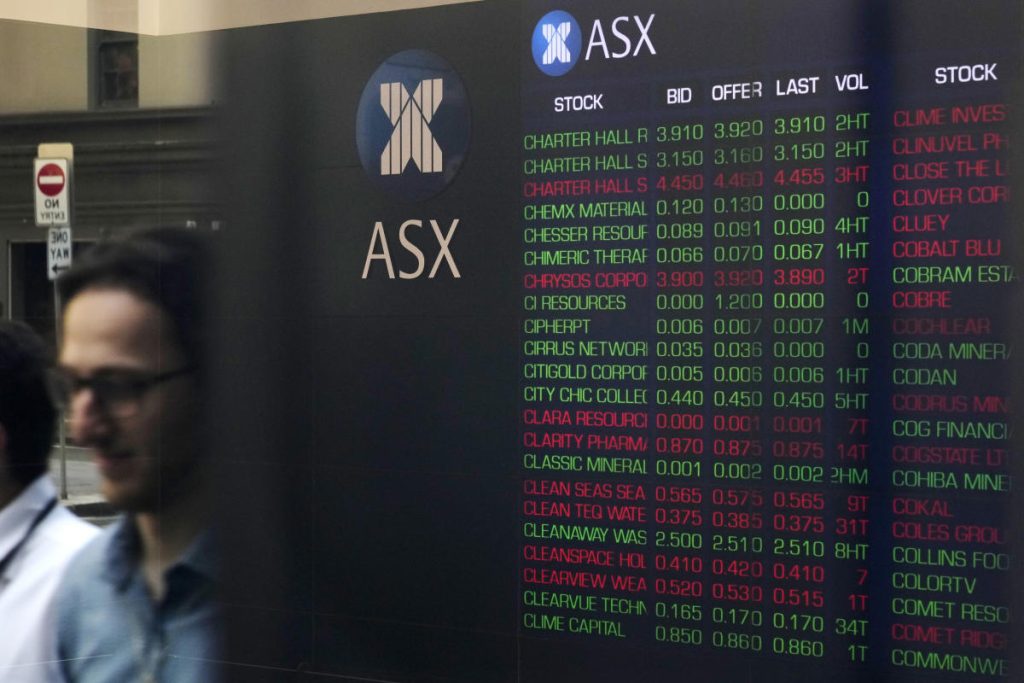
TOKYO (AP) — Global markets shares were mixed on Tuesday, with trading closed in Tokyo and Seoul for New Year holidays.
France’s CAC 40 rose nearly 0.1% to 7,307.87, while Britain’s FTSE 100 was little changed at 8,119.65. German markets are closed on New Year’s Eve and Jan. 1 with trading set to continue Thursday.
The future for the S&P 500 edged 0.2% higher while that for the Dow Jones Industrial Average was up 0.1%.
Australia’s S&P/ASX 200 in Sydney skidded 0.9% to 8,159.10.
Hong Kong’s Hang Seng added nearly 0.1% to 20,059.95, while the Shanghai Composite lost 1.6% to 3,351.76 after Chinese manufacturing data seemed to show that Beijing’s stimulus measures have not done enough to boost the nation’s sluggish economy.
China’s Purchasing Managers’ Index, based on a survey of factory managers, slipped to 50.1 in December from 50.3 the previous month, the National Bureau of Statistics said Tuesday. It was the third straight monthly reading above 50, a level that indicates an expansion of manufacturing activity.
Trading is set to resume in Tokyo on Jan. 6, as markets will stay closed for the rest of the week for the New Year holidays. South Korean markets will be closed for New Year’s Day and resume trading Thursday.
U.S. markets will be closed on Wednesday.
They retreated Monday. The S&P 500 shed 1.1% and the Dow fell 1%. The Nasdaq composite ended 1.2% lower.
Boeing stocks declined after one of its jets skidded off a runway in South Korea, killing 179 of the 181 people aboard. South Korea is inspecting all 737-800 aircraft operated by airlines in the country.
The disaster was yet another blow for Boeing following a machinists strike, further safety problems with its troubled top-selling aircraft and a plunging stock price. Its shares have declined more than 30% this year.
Markets are nearing the close of a stellar year driven by a growing economy, solid consumer spending and a strong jobs market. Investors were encouraged by inflation cooling throughout the year to close to the Federal Reserve’s 2% target. That raised hopes that the central bank would deliver a steady stream of interest rate cuts, which would ease borrowing costs and fuel more economic growth.
The Fed cut interest rates three times in 2024, but has signaled a more cautious approach heading into 2025 as inflation shows signs of reheating. The latest report on consumer prices showed that inflation edged slightly higher, to 2.7%, in November.
President-elect Donald Trump’s threats to hike tariffs have added to worries about the potential for inflation to reignite. Companies typically pass along the higher costs from tariffs on goods and raw materials to consumers.


